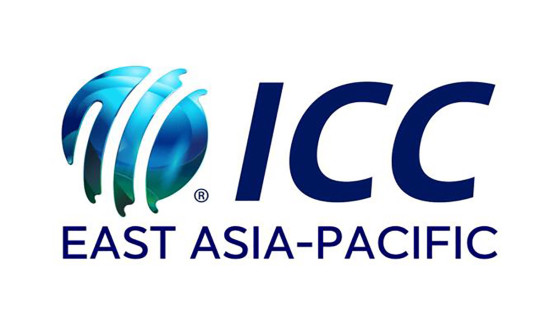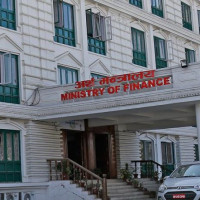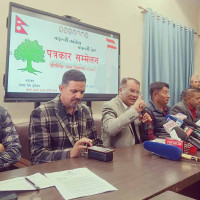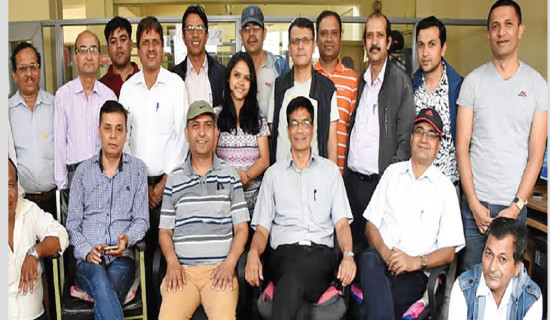- Friday, 30 January 2026
Experts fear cholera outbreak in Valley
Kathmandu, June 21: The risk of cholera outbreak in the Kathmandu Valley has threatened public health after the Ministry of Health and Population (MoHP) confirmed two cases in the Capital. The disease was detected in two females aged 18 and 23 years from Kathmandu Metropolitan City-28, Bagbazar.
Both of them are receiving treatment at the Sukraraj Tropical and Infectious Disease Hospital (STIDH), Teku. According to Manisha Rawal, director at the STIDH, the patients were unconscious when they were brought to the hospital, and were admitted to the intensive care unit (ICU).
Their condition was so critical when they arrived at the hospital but now they are out of danger, said Rawal.
According to Dr. Rawal, three other suspected patients have been admitted at ICU of the hospital with severe diarrhoea, which is one of the symptoms of cholera. The stool samples of the patients have been sent to the National Public Health Laboratory for testing.
Monsoon season along with garbage littered on the streets of Kathmandu Valley has added more risk of cholera, an acute intestinal infection, caused by ingesting contaminated food or water with the bacterium Vibrio cholera.
Health experts have warned that cholera may spread in the valley, if the accumulated garbage is not managed at the earliest.
The Kathmandu Valley is at high risk of outbreaks due to a steady increase in urban population density accompanied by an inadequate supply of safe water and improved sanitation along with mismanagement of wastes, said Dr. Rawal.
Doctors warn that increase in rainfall and disruption in garbage collection in Kathmandu Valley have increased the risk of contamination in drinking water sources and, therefore, of outbreak of waterborne diseases like cholera.
Symptoms of cholera include excessive diarrhoea, vomiting, constriction of the stomach, thirst and weakness in muscles.
“Cholera quickly leads to severe dehydration and death if left untreated," said Dr. Sher Bahadur Pun, chief of the Clinical Research Unit at STIDH.
It may cause serious infections in one of ten infected people. According to various studies it has been found that the death rate can reach up to 50 per cent if left untreated, added Dr. Pun.
As per the World Health Organisation (WHO), cholera is a global threat to public health and an indicator of inequality and a lack of social development. Researchers estimate that annually there are between 1.3 million and four million cases of cholera worldwide, leading to between 21,000 and 143,000 deaths.
Doctors have suggested drinking boiled water and using safe water to wash and prepare food, washing hands often with soap and safe water to keep the infectious disease at bay. They have also asked to eat well-cooked food and avoiding street, fast and junk foods.
Following the confirmed cases of cholera in Kathmandu, the MoHP has asked all the city dwellers to be cautious and prioritise personal hygiene and sanitation. As the rainy and monsoon season is favourable for spread of waterborne diseases including cholera, ensure safe water and maintain food and personal hygiene, suggested Dr. Sameer
Kumar Adhikari, deputy spokesperson at the MoHP.
Dr. Chuman Lal Das, Director of the Epidemiology and Disease Control Division (EDCD), has said that public awareness of water, sanitation and hygiene along with surveillance, and social mobilisation will be adopted to check the spread of the infection.
















